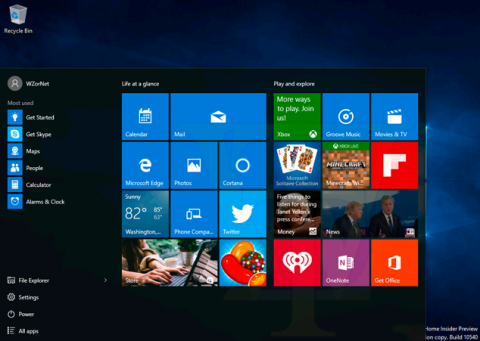-
Tips for becoming a good boxer - November 6, 2020
-
7 expert tips for making your hens night a memorable one - November 6, 2020
-
5 reasons to host your Christmas party on a cruise boat - November 6, 2020
-
What to do when you’re charged with a crime - November 6, 2020
-
Should you get one or multiple dogs? Here’s all you need to know - November 3, 2020
-
A Guide: How to Build Your Very Own Magic Mirror - February 14, 2019
-
Our Top Inspirational Baseball Stars - November 24, 2018
-
Five Tech Tools That Will Help You Turn Your Blog into a Business - November 24, 2018
-
How to Indulge on Vacation without Expanding Your Waist - November 9, 2018
-
5 Strategies for Businesses to Appeal to Today’s Increasingly Mobile-Crazed Customers - November 9, 2018
Edge will support Skype calls without a plugin
“Starting later this year, Skype users will be able to make voice and video calls without needing to install a plug-in on Microsoft Edge and we are working on bringing the same seamless experience to Skype for Business”, said the Skype team.
Advertisement
Microsoft’s Skype team has announced the availability of ORTC API, which will essentially allow users to make voice and video calls without the need of any plug-ins. This feature is not limited to Skype for web and Outlook.com, but is also available for any services that are compatible with WebRTC. Nonetheless, the service states that the technology will end the preview phase and go live later this year. “The ORTC APIs will enable us to develop advanced real-time communications scenarios – like group video calls with participants all on different browsers and operating systems – using features like Simulcast and Scalable Video Coding (SVC), all while preserving the ability to easily interop with existing telephony networks”, Microsoft says. WebRTC is supported by other non-Edge browsers, including Chrome, Firefox, and Safari, but it’s still not sure whether Skype will allow for similar capabilities on those browsers or not. This facilitates web apps such as voice calling, video conferencing, and general P2P data sharing directly within the browsers. It can use technology that is safe and approved for the computer which is enabled through a browser for streaming the data.
If web standards are supposed to eliminate the unnecessary in-fighting & strengthen the interoperability between all browsers what is the need for two real-time data API’s then?
Object RTC was developed by Microsoft in response to what the company saw as a flawed WebRTC standard. Perhaps it wouldn’t be too far of a stretch that it will make its way to other web browsers as well.
Advertisement
Edge has already considered as a default browser from windows with excellent performance and Microsoft is still adding improvements to it.





























